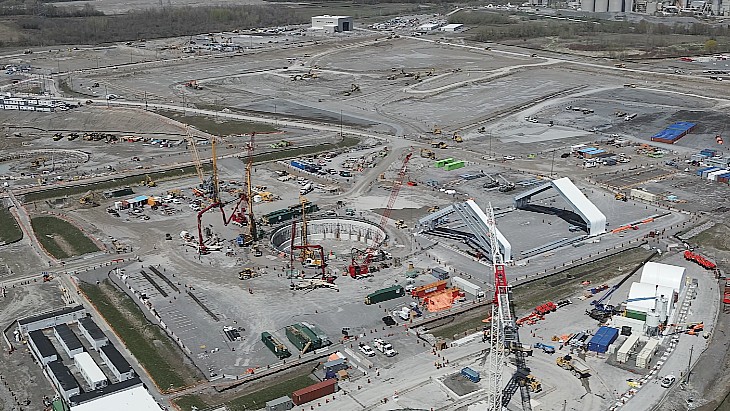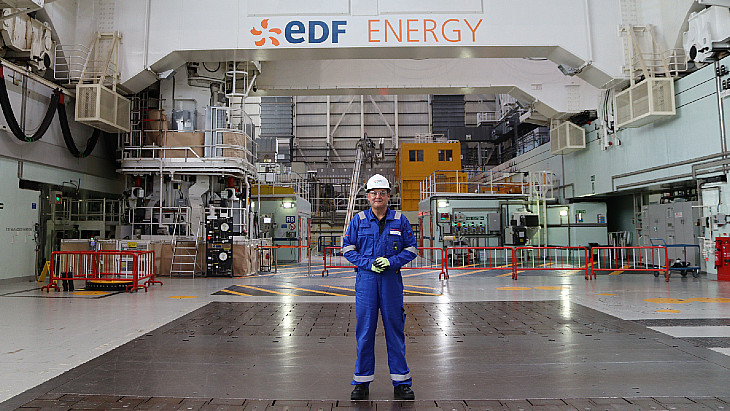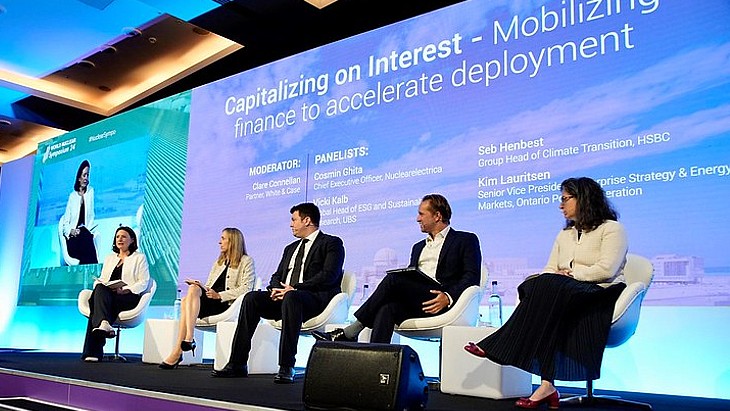Viewpoint: Why sustainable finance needs to be defined by evidence not ideology

The decision by the European Council to support the Finnish Presidency's wording in favour of "renewable and climate-neutral energy sources" leaves the door open for nuclear energy to be classified as green in the new EU Sustainable Finance Taxonomy.
Predictably, and yet still shockingly, Germany, Austria and Luxembourg voted against it. History will judge them, and those NGOs, including WWF, that are campaigning, purely on ideological grounds, to shut down Europe's largest source of clean energy during the height of our climate emergency.
Excluding nuclear from accessing sustainable finance risks undermining climate mitigation scenarios and roadmaps by some of the world's most credible and authoritative international institutions and organisations. These include IPCC (2018), European Investment Bank (2019), IEA (2019) and the European Commission (2018). All of these (and more) conclude that nuclear energy should continue to play a significant role in a cost-effective, timely and successful climate mitigation effort.
David Wallace-Wells' insight, in his best-selling book Uninhabitable Earth, that half of the emissions in the atmosphere today were emitted in the last 30 years - since Al Gore published his first book on climate change - should haunt us. We now have only 30 more years - a single generation - to almost completely eliminate emissions from our global fossil-fuel infrastructure if we are to turn the tanker and avoid the worst effects of climate change. And yet, despite 30 years of successfully raising the alarm about climate change, we have not made a dent in the upward trajectory of emissions. Wind and solar, despite decades of successful deployment and cost reduction, today meet just 3% of total energy demand.
Nuclear is Europe's largest source of low-carbon power and sustains 1.1 million jobs. European climate leaders are modern industrialised economies with low-carbon intensity of electricity generation, achieved through a combination of nuclear and renewables (Norway, Iceland, Sweden, Switzerland, France, Belgium and Finland). Nuclear can support further decarbonisation alongside an expansion of renewables such as solar and wind across the EU. In the near future, it can also contribute towards decarbonisation of heat and transport through production of clean synthetic fuels such as hydrogen.
We, a group of independent analysts and writers, published a detailed report, and petition (now signed by more than 2500 people, and with more than 1100 supportive comments) making the case for authoritative, evidence-based science to inform Europe's energy and climate change policies.
Here's what we found:
The Evidence of Nuclear Energy's Sustainability
Our group of independent analysts and energy experts did a thorough review of the best mainstream scientific literature and statistical evidence regarding all the sustainability objectives and criteria used in the taxonomy, to see if nuclear fulfils the criteria. It does, hands down.
In our report, we summarise some of the implications and problems with the European Commission's Technical Expert Group (TEG) proposal to leave nuclear energy out from the taxonomy. They bear repeating here:
First, the exclusion of nuclear energy on the basis of concerns about waste management are invalid since all commercial nuclear activities in the EU (including spent fuel management) are already regulated to a 'Do no harm' (DNSH) standard through the Laws, Regulations, and Procedures of the EU and the Member States. By contrast, the world's scientific consensus concludes that maintaining and expanding nuclear energy is necessary to achieve sustainability objectives, such as climate change mitigation.
Second, the TEG decision to, as yet, not include nuclear energy undermines the sovereign energy and climate policies of EU nations. It seems clear that this is what Germany, Austria and Luxemburg representatives are aiming to do by trying to make funding nuclear energy projects ever harder.
Third, the TEG justification to not include nuclear undermines climate mitigation scenarios and roadmaps that have been identified as feasible and necessary by some of the world's most credible and authoritative international institutions and organizations, including the IPCC, IEA and the European Commission.
Fourth, the TEG justification to not include nuclear undermines the integrity, professionalism and independence of national and international regulations and responsible regulators. It also questions the integrity of international legislation (Euratom Treaty) and guidelines (for example from International Atomic Energy Agency and International Committee on Radiological Protection) regarding nuclear industry full lifecycle safety, radiological protection and responsibility in all nuclear operations.
Fifth, the evaluation of all forms of low-carbon electricity generation should be made on equal grounds. To not do so will undermine the credibility and technology neutrality of the taxonomy for its potential users.
Finally, by creating a different set of requirements for one activity over the others, the TEG is compromising its own integrity and credibility as an independent technical expert group.
If the Taxonomy aims to be a technology neutral document - which it says it is - then it needs to prove this. It needs to prove it by sticking to the best available evidence and disregarding political ideology. Otherwise it risks becoming irrelevant.
The inclusion of nuclear energy as a source of low carbon and sustainable generation should be confirmed by the European Commission and the Parliament.
The outcome of the negotiations is very uncertain, and the real devil will be in the implementation phase. Therefore, we need to keep the pressure up. You can help.
1. We need to strengthen the Council and the Member States (who agree with us) on the issue of how nuclear power is sustainable. Use our Sustainable Nuclear report, and other materials on the Energy for Humanity website, to draft your own correspondence making the case for nuclear to be included to policy makers, political representatives and the media.
2. Brief your local European MEPs.
3. Write to the new Technical Expert Group to offer expert input in support of the Council and Parliament's negotiations.
4. Sign and share our petition to help us reach the goal of 5000 signatures.
Kirsty Gogan, Energy for Humanity & LucidCatalyst; Rauli Partanen, THINK ATOM and Eric Ingersoll, Energy Options Network and LucidCatalyst

_88592.jpg)







